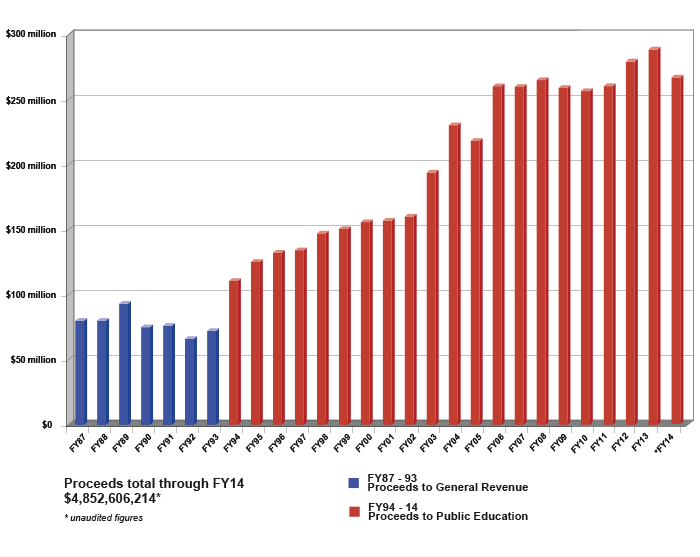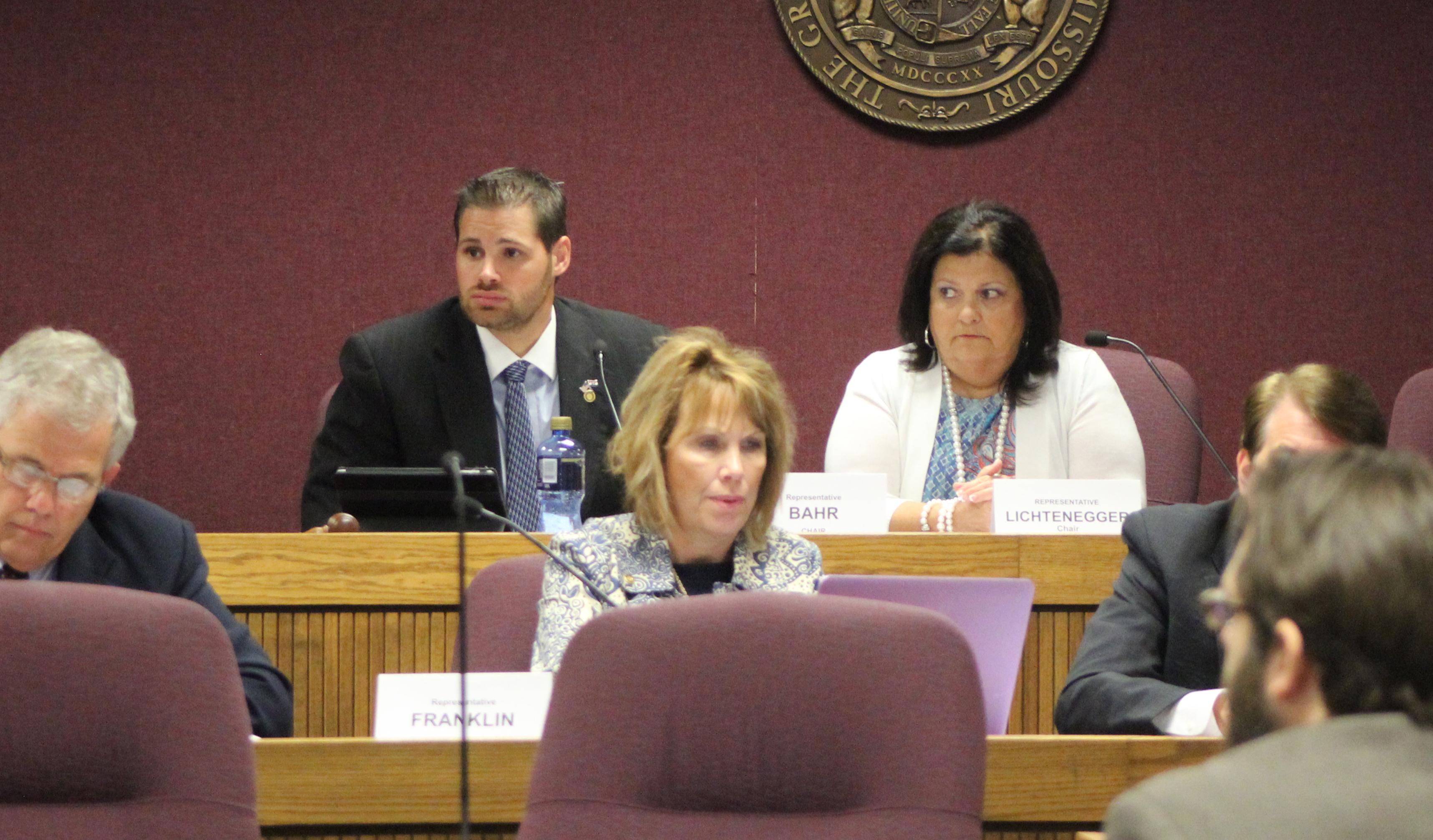JEFFERSON CITY, Mo. – In a dual committee hearing involving both the House Appropriations Committees on Elementary and Secondary Education and Higher Education Tuesday morning, legislators attempted to understand the role lottery funds play in two pieces of legislation that affect funding for education.
HB 2 and HB 3, both sponsored by Chairman of the Budget Committee, Rep. Tom Flanigan, R-Carthage, respectively appropriate expenses, grants, refunds and distributions to the Department of Elementary and Secondary Education (DESE) and the Department of Higher Education.
Chair of the Appropriations for Elementary and Secondary Education, Rep. Kurt Bahr, R-St. Charles, noted that the hearing would not involve any action by the committee but would instead serve as a chance to understand the background of the lottery’s involvement in state educational funding.
Executive Director of the Lottery Commission May Scheve Reardon provided most of the testimony and outlined how money from the lottery proceeds fund is used towards the state’s educational needs. She also explained that the lottery was a for-profit business working within the confines of state government, and that the business-like mindset adopted by the Missouri Lottery helps students.
“We want to provide as much money as we can to the state,” she said. “We have worked with independent thinkers to maximize dollars that go out to our players, but also maximize the profits that go to education.”
So far, the lottery has raised nearly $5 billion in funds in the 30 years of its existence. All funds raised since 1994 have gone towards education.
While a few members of the House raised concerns from their constituents that money from the lottery and gaming do not actually go towards education funding, Reardon assuaged those concerns by noting the separation between the Missouri lottery and gaming. While tax revenue from gaming can be distributed to education, veterans’ services and community projects, the funds raised by the lottery is constitutionally obligated to be spent exclusively on education.

However, that funding has begun to plateau. Since FY 2006, the lottery has experienced less growth on average, instead remaining stagnant, usually raising around $260 million per year. Reardon says the stagnation indicates that a shift in how the lottery is played may be necessary to ensure funds can keep up with rising costs.
Reardon says increased prize payouts have been one option. Statutorily, a 45 cent minimum on every dollar is required to go toward prize payouts. Currently, 65 percent of money raised by the lottery goes to those lucky winners.
“We try to figure out what is going to entertain the player,” Reardon said. “We’re a very mature lottery, and the mature lottery players they want different things. It ebbs and flows.”
She suggested other ways to keep revenue high: transitioning to online lottery systems, targeting millennials and transitioning to debit card use over cash-exclusive use could all help the Missouri Lottery transition into modern times.
“If you could play on your phone, if you could play without cash, those are the moves,” Reardon said. “We have to change how we play the lottery today.”



